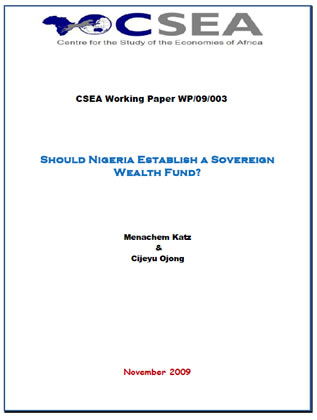Author:Menachem Katz&Cijeyu Ojong
Publication Date: Novvember 2009
Document Size: 53 Pages
SWF are investment vehicles created and owned by governments or sovereignswith the strategic aim of leveraging current account surpluses and temporarily highrevenues to invest in income-producing assets that promise high risk-adjusted returns inthe financial markets. They offer economic and financial benefits. SWFs, under soundoil revenue management frameworks, can help to mitigate boom-bust cycles in the homecountries, and facilitate the saving and transfer across generations of proceeds from fiscalsurpluses emanating primarily from oil. By allowing for greater portfolio diversification,they reduce the opportunity cost of reserve holding, but at the same time increase the risk.

